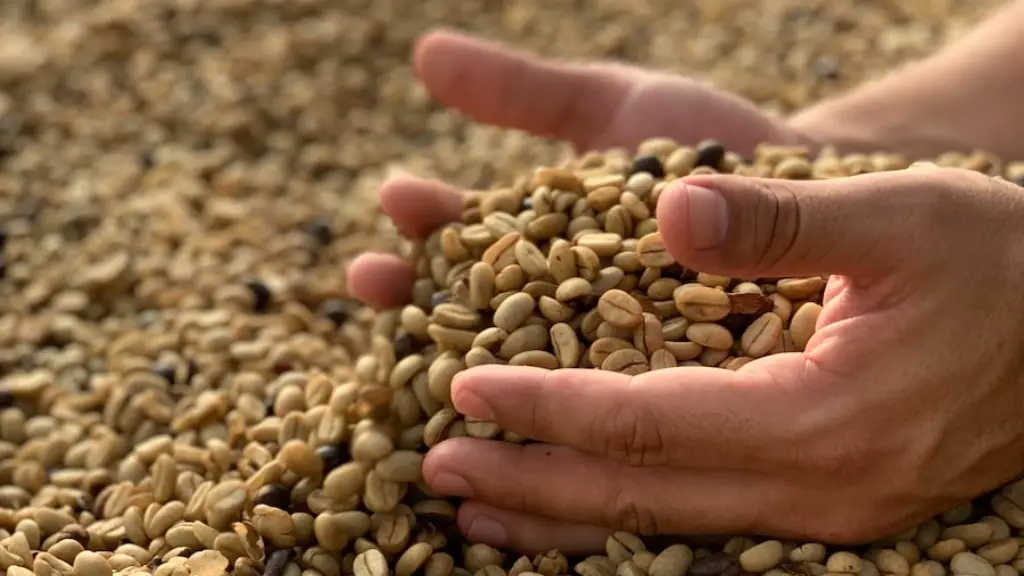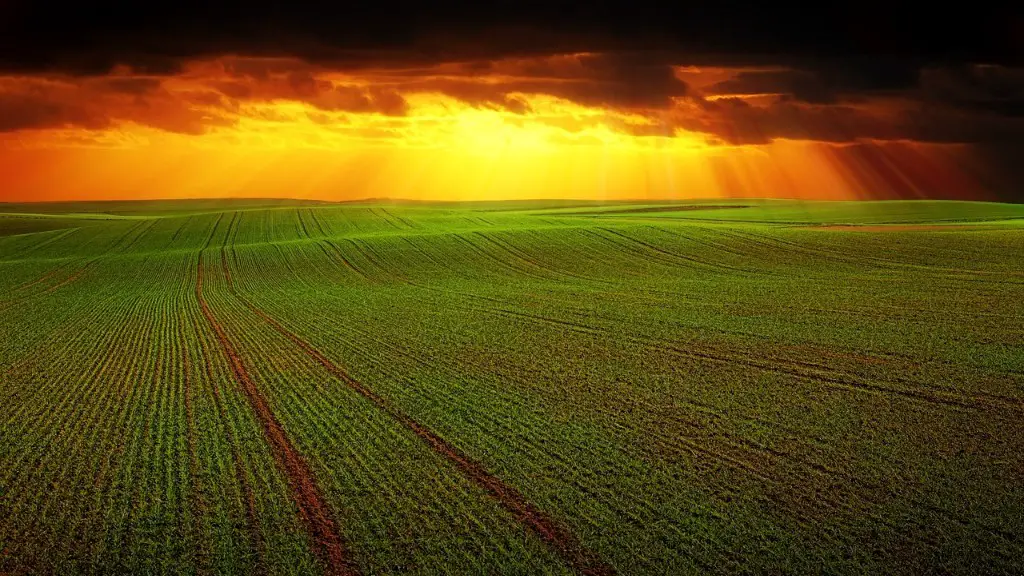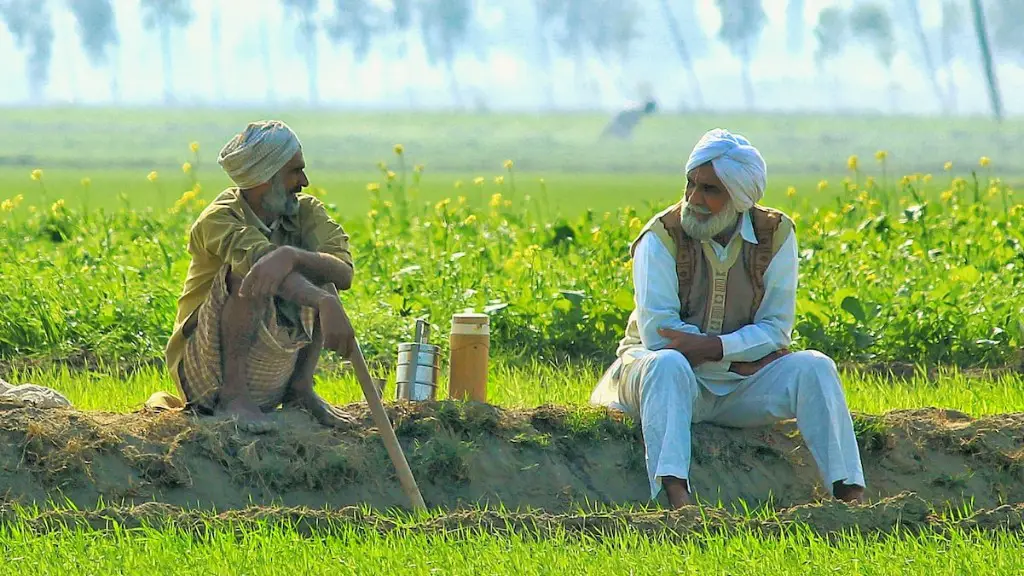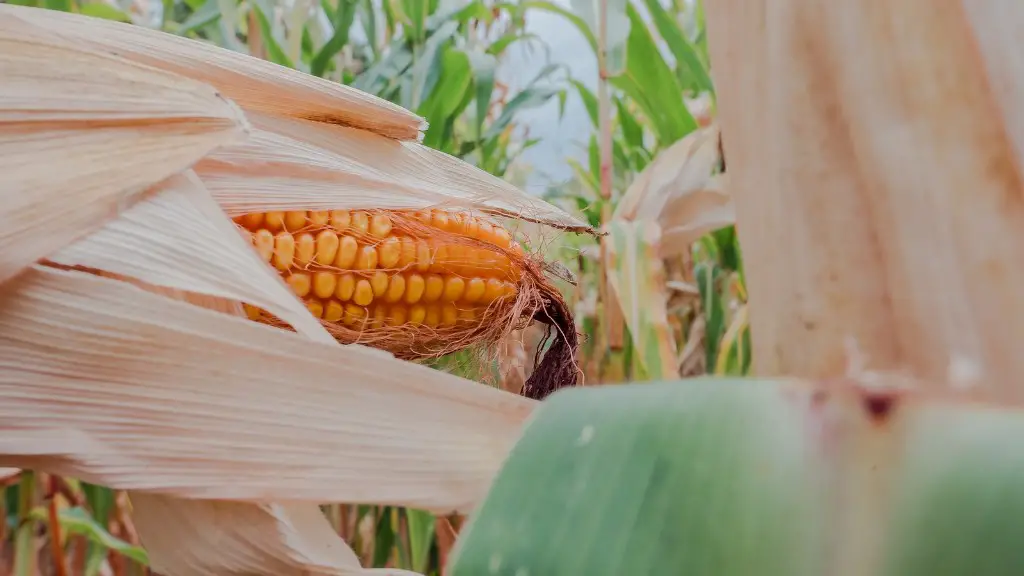The Industrial Revolution had a profound effect on agriculture. It greatly increased the productivity of farms and the efficiency of farm labor. It also led to the development of new, more productive types of crops and livestock.
The industrial revolution had a profound effect on agriculture. It led to the development of new machines and technology that increased productivity and efficiency. It also led to the growth of cities and the rise of the middle class, which created new markets for agricultural products.
Why was agriculture important in the Industrial Revolution?
The Agricultural Revolution led to the Industrial Revolution by transforming how food was produced. The innovations in agriculture, such as crop rotation and livestock breeding, resulted in higher yields. This allowed for the development of new mechanical equipment, which required fewer workers. The Agricultural Revolution thus laid the foundation for the Industrial Revolution by increasing the efficiency of food production.
The agricultural revolution had a variety of consequences for humans. It has been linked to everything from societal inequality—a result of humans’ increased dependence on the land and fears of scarcity—to a decline in nutrition and a rise in infectious diseases contracted from domesticated animals.
How did the Industrial Revolution affect agriculture quizlet
New farming techniques and improved livestock breeding led to amplified food production. This allowed a spike in population and increased health. The new farming techniques also led to an enclosure movement, which led to the displacement of many farmers and the rise of new, more efficient farming practices.
With the industrial revolution, farmers were able to produce more food with less manpower. The use of fertilizers and pesticides also became widespread during this time, which helped to increase crop yields even further. The industrial revolution also led to a shift in how food was distributed.
What are 3 benefits of industrial agriculture?
Industrial agriculture is a type of farming that uses modern technology and equipment to process meat, eggs, milk, crops, and other food items in a quick and efficient way. This type of agriculture can reduce overhead expenses while earning more revenue and profits, which can lower food costs.
While the development of agriculture in a region can have positive effects on the natural life, oxygen production and climate in the region, it can also lead to negative effects such as inorganic nitrate pollution, pesticide pollution and salinity problems. These problems are especially prevalent in regions where agriculture is conducted on an intensive basis.
What was a positive effect of the Agricultural Revolution?
The Agricultural Revolution was a period of time during which new crops and new methods of crop rotation were experimented with. These new farming techniques gave soil time to replenish nutrients, leading to stronger crops and better agricultural output. Advancements in irrigation and drainage further increased productivity.
The Green Revolution was a time when agriculture became increasingly mechanized. Improvements in equipment for plowing, planting, and harvesting immensely reduced human and animal labor on the farm.
Did the Industrial Revolution cause the agricultural revolution
The Agricultural Revolution was the unprecedented increase in agricultural production in Britain between the mid-17th and late 19th centuries. It preceded the Industrial Revolution and is often considered one of its causes. The Agricultural Revolution was marked by a series of new developments and technological innovations in agriculture, including the adoption of new crop strains, the use of new farming techniques, and the application of scientific principles to agriculture. These innovations allowed for a more efficient and productive use of land and resources, and resulted in a significant increase in agricultural production. The Agricultural Revolution had a profound impact on British society and economy, and laid the foundation for the Industrial Revolution.
The Industrial Revolution was a time of great change for the economy. It shifted from an agrarian economy, where products were made by hand, to a manufacturing economy, where products were made by machines. This led to increased production and efficiency, lower prices, more goods, improved wages, and migration from rural areas to urban areas.
Why does industrialization affect farming or agriculture?
The increased demand for raw materials during the industrialisation period led to farmers adopting new methods to increase production. This in turn led to the invention of new machines for tasks such as digging, sowing and reaping. However, it also resulted in some farmers becoming unemployed.
The advances in agricultural technology during the third industrial revolution have been hugely beneficial for farmers, particularly in terms of using more effective weed and insect-resistant crops, and genetically engineered crops. However, it is important to note that these advances are often accompanied by an increase in the use of more harmful insecticides, which can pose a serious threat to the environment.
What three inventions changed the agricultural world during the Industrial Revolution
The agricultural revolution brought about a lot of advances in agricultural techniques and equipment. The wooden plow, new horse-drawn threshers, and grain and grass cutters were some of the most important advances. These advances helped to increase productivity and efficiency in agricultural production.
Industrial farming has been a controversial topic in recent years, with some people arguing that it is detrimental to the environment and to the quality of the food produced. However, there are also many benefits to industrial farming, such as increased food production. This is especially important as the world population continues to grow at a steady rate. Industrial farms can keep up production rates much easier than small rural farms that only distribute food locally. In addition, industrial farms can often produce food more cheaply than small rural farms, making it more affordable for people to buy.
What is the role of agriculture in industrial?
Agriculture plays a major role in economic growth and development. It is the provider of food, which is a cornerstone of human existence. It is also a furnisher of industrial raw materials, which is an important contributor to economic activity in other sectors of the economy.
The industrial agriculture system is not sustainable. It consumes fossil fuel, water, and topsoil at unsustainable rates and contributes to numerous forms of environmental degradation, including air and water pollution, soil depletion, diminishing biodiversity, and fish die-offs.
What is the main impact of agriculture
Agriculture is one of the leading sources of pollution in many countries. Pesticides, fertilizers and other toxic farm chemicals can poison fresh water, marine ecosystems, air and soil. They also can remain in the environment for generations.
Soil fertility is one of the most important environmental effects of agriculture. It is the ability of soil to provide nutrients necessary for plant growth. Soil fertility can be lost due to soil erosion, leaching and nutrient depletion.
Eutrophication is the enrichment of water bodies with dissolved nutrients, which can lead to increased plant growth. This can cause problems for fish and other aquatic animals, as well as for the plants themselves.
Deforestation is another environmental effect of agriculture. It is the conversion of forested areas to non-forested land, which can lead to soil erosion, loss of wildlife habitat and climate change.
Climate change is another environmental effect of agriculture. It is caused by the release of greenhouse gases into the atmosphere, which trap heat and cause the Earth’s temperature to rise. This can lead to extreme weather conditions, sea level rise and loss of biodiversity.
Pesticide pollution is another environmental effect of agriculture. It is the contamination of water bodies and soil with chemicals used to kill pests. This can lead to health problems for humans and animals, as well as to the development of resistance in pests.
Final Words
The industrial revolution marked a major turning point in history; it signaled the change from an agricultural to an industrial society and economy. This transformation had a profound and long-lasting impact on the socio-economic and cultural conditions of the times. It spurred on the growth of cities and the rise of a new urban middle class, and led to new social tensions between the urban proletariat and the rural landowners. The industrial revolution also had a profound impact on the natural environment, as the new factories and coal mines released unprecedented levels of pollution into the air and water.
The Industrial Revolution had a profound effect on agriculture. It led to the development of new technologies and the introduction of new crops, which increased yield and productivity. It also led to the specialization of labor, which allowed for the mass production of food. The increased efficiency of agriculture allowed for the population to grow, which in turn led to more demand for food. The Industrial Revolution transformed agriculture from a subsistence activity to a commercial enterprise, and laid the foundation for the modern food system.





